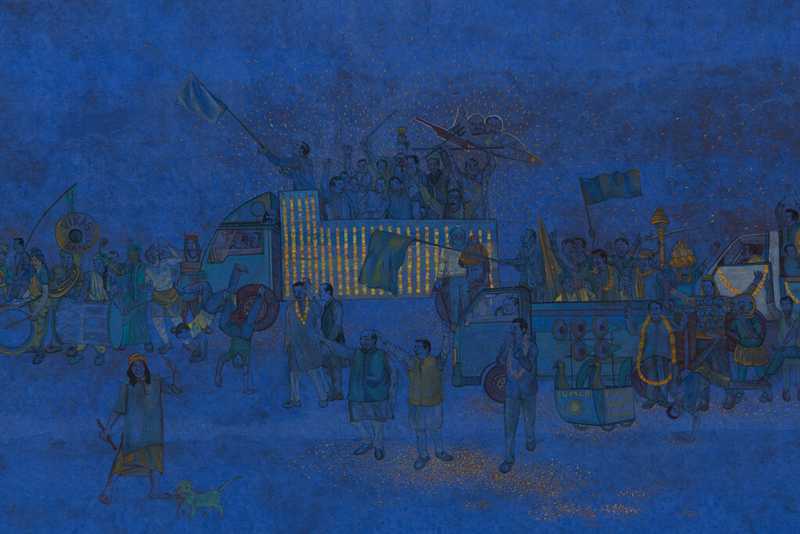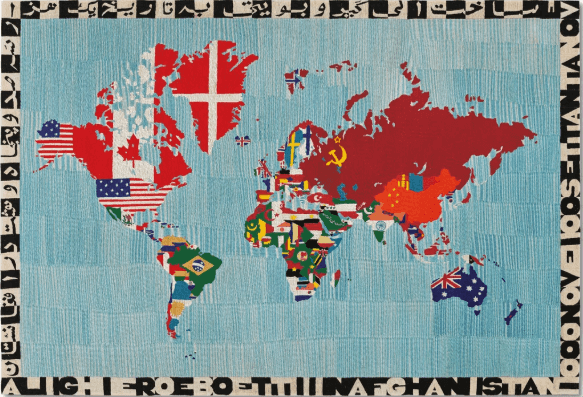
India is four weeks into its six-week-long general election. Nearly 70 per cent of the country’s 543 constituencies have now voted. The results for all seats are due to be declared on 4 June.
Thus far, it has been the ugliest election since independence; the ruling Bharatiya Janata Party’s (BJP) overt Hindu supremacism has demonised and disenfranchised India’s 170 million Muslim citizens. The BJP has spent recent years repressing critical media and the political opposition to advance a fundamentally anti-democratic and exclusionary project.
Prime Minister Narendra Modi has set the tone, referring to the Indian Muslim population as “infiltrators” who have “lots of children”, and claimed they gobble up the country's resources and welfare entitlements. In another speech, he accused the political opposition of encouraging and engaging in “vote jihad.” BJP leaders and social media accounts have been openly inciting hatred against religious minorities in India.
On Wednesday, Yogi Adityanath, the BJP Chief Minister of Uttar Pradesh, India’s most populous state with over 240 million inhabitants, told Muslims to “go to Pakistan and beg there, don’t burden India.” Such rhetoric is not only dangerous and divisive in a country with a history of inter-religious violence, but also against the law.
The Representation of the People Act prohibits candidates from appealing to voters “on the ground of [...] religion”, an act that can disqualify candidates from running for six years. That law also prescribes a three-year jail term for any candidate who “promotes … on grounds of religion .. feelings of enmity or hatred.” However, the Election Commission of India has not taken a single punitive action against the BJP or its leaders.
Taking a cue from Modi’s speeches, the police in Uttar Pradesh have prevented Muslims from voting in the Sambhal constituency. Muslims were beaten, abused, and sent back, with their election identity cards either confiscated or torn up by the police.
In at least three parliamentary seats, candidates from other parties and independents withdrew from the contest, leaving them uncontested. In the constituency where Home Minister Amit Shah is running, 16 candidates have withdrawn. Some candidates alleged that their decision was made under duress following “pressure” from the BJP. “It is possible that I will be killed,” one candidate who has withdrawn his candidature said in a video, “I appeal to my countrymen: save this nation; it is in danger.”
Shah has campaigned for his party’s reelection with the crudest possible Islamophobia. His speeches are peppered with references to Muslims as “infiltrators”, suggesting a vote for the opposition is a “vote for Jihad”.
This is not rogue rhetoric but the BJP’s core script. Just this week, the BJP Chief Minister of Uttarakhand, Pushkar Singh Dhami, claimed that the opposition party “Congress will implement sharia law in the country and will give privileges to Muslims. They will take away half of the wealth of Hindus and distribute it amongst Muslims.” The Indian National Congress has no such policy.
Despite Modi deploying Islamophobia as a campaigning and government strategy, he is still feted by leaders around the world. He has been honoured by US President Joe Biden with a state banquet and by French President Emmanuel Macron as guest of honour at Bastille Day.
But in India, progressive forces are struggling to preserve India’s secular democracy. An alliance of social movements from across the country have called on the Election Commissioners to "grow a spine or resign", urging the body to combat hate speech and prevent electoral manipulation.
The Progressive International’s Observatory continues to be on the ground and will keep you up to date with the election’s developments.
Latest from the Movement
Nakba Day
The Nakba never ended. The catastrophe that befell the Palestinian people at the hands of Zionist militias and British imperialism 76 years ago this week has continued every day since. To understand where this genocide came from, and the Nakba that never ended, please watch this video narrated by PI Council Member Yara Hawari, published shortly before 7 October 2023.
Today, the Nakba intensifies as Israel broadens its barbaric assault on Rafah. The United Nations has announced that it is now “nearly impossible” to distribute aid with all crossings into the Gaza strip “closed, unsafe to access, or not logistically viable.” Israel's denial of lifesaving aid has convinced former skeptics that Israel is committing genocide. In an article for the New York Review of Books, Aryeh Neier, co-founder of Human Rights Watch wrote, “I am now persuaded that Israel is engaged in genocide against Palestinians in Gaza.”
This genocide continues to spur action around the world. On Nakba Day, 15 May, activists raised the alarm that Spain’s port of Cartagena was receiving the Borkum, a military cargo ship bound for Israel. Spain’s progressive forces and allies around the world demanded Prime Minister Pedro Sánchez comply with international law by blocking its passage – or be complicit in the unfolding genocide of the Palestinian people. In response, Spain’s government has claimed the ship was not destined for the Israeli port city of Ashdod but rather Czechia. As Czechia is a major arms exporter to the Israeli regime, activists are demanding assurances the arms will not later be transferred to Israel.
In Berlin, tech workers picketed Amazon Web Services (AWS) Summit to protest Amazon's Project Nimbus, a $1.2 billion contract with the Israeli military. The workers demand that AWS drop Project Nimbus immediately.
How the US privatised war
The ways of war are changing. Artificial intelligence is used to bomb families in Gaza. Flying drones are deployed to track down refugees on the US-Mexico border. But the biggest change is the one we talk about the least: the privatisation of war. From Yemen to Sudan, Syria to Nigeria, tens of thousands of guns for hire now fight on behalf of foreign powers.
For Episode 7 of “The International,” a world-spanning video series brought to you by Jacobin and the Progressive International, Rania Khalek tells the story of how we got here. It is the tale of an infamous US firm known as Blackwater and the rise of the secret mercenary armies that have pushed warfare into the shadows. Watch the episode here.
When Philadelphia bombed itself
39 years ago this week, the US American city of Philadelphia’s police department deliberately dropped C-4 plastic explosives onto a row of buildings on Osage Avenue killing 11 people. Throughout the 1980s, the United States sponsored "covert'' paramilitary operations across Latin America as part of the Reagan administration’s efforts to oppress those who dared to break imperialism’s shackles. As the Philadelphia bombing reminds us, this militarised brutality was felt at home, too, through racialised state violence. Read more about this shocking day in history from our On This Day post here.
Art of the Week: Varunika Saraf is an artist and art historian based in Hyderabad. The image depicted is a detail of Vikas Band & Co., a watercolour painting almost two meters wide on Wasli, a material devised in India in the 10th century.
Her large-scale paintings draw upon archival sources to critically analyse antecedents of contemporary political and social issues through “a hijacking of” tradition. For the artwork in Caput Mortuum, Saraf was inspired by Griselda Pollock’s work that claims memory: “agitates the present to warn us of the continuing threat, not only of genocide but of the experimental elaboration of a system of total domination and systemic dehumanization.”
In Saraf’s own words, the “events inscribed onto the surface of each painting document the extraordinary struggles that people are facing and bear witness to life without power and political agency.”



